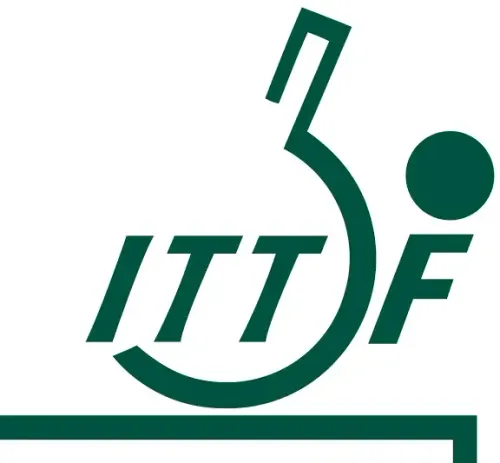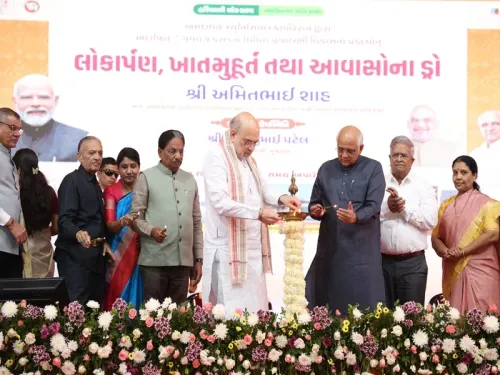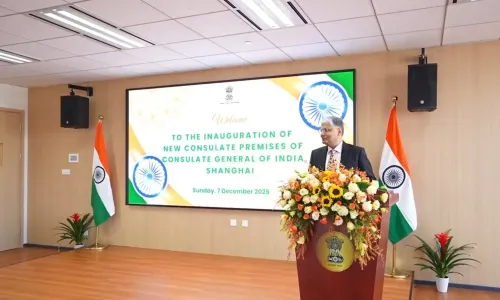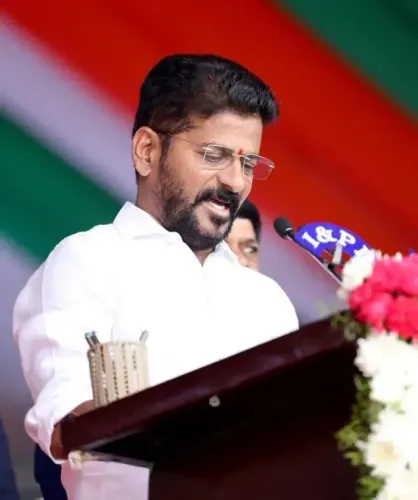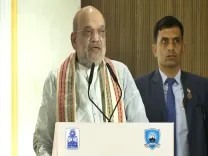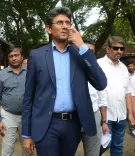Trump Highlights India's Aadhaar-EPIC Linkage Amid US Voter ID Concerns

Synopsis
Key Takeaways
- India links Aadhaar with EPIC for voter identification.
- Trump contrasts US and Indian electoral integrity measures.
- US lacks a national election system, leading to inconsistencies.
- California's law clashes with Trump's identification order.
- Potential legal challenges to Trump's directive are anticipated.
New York, March 27 (NationPress) US President Donald Trump has pointed out India's mandate for voters to associate their Aadhaar card with the Election Photo Identification Card (EPIC) as an illustration of a country ensuring the integrity of its electoral process, contrasting it with the relaxed voter identification procedures in the United States.
In a directive issued on Tuesday, which mandates voters in federal elections to substantiate their citizenship, he drew a comparison between the electoral practices of the US and India, stating in the opening paragraph that India is “connecting voter identification to a biometric database, whereas the United States predominantly depends on self-attestation for citizenship”.
“Despite being a pioneer in self-governance, the United States currently fails to implement fundamental and essential election protections that are applied by both modern and developing nations,” he wrote.
As per his order, voters would be obligated to present a passport or specific other documentation to validate their citizenship in order to vote.
Unlike the US, which lacks a national election framework, India’s election regulations, laws, machinery, and systems are overseen by a robust national Election Commission that upholds the integrity of the voting process nationwide.
The Election Laws (Amendment) Act, enacted in 2021, mandated the linking of Aadhaar with EPIC.
The Election Commission is finalizing the process for implementing this requirement, and some voters have already completed the linking.
The US does not have an equivalent to India’s Election Commission; its Election Commission only regulates election financing.
In the US, elections are conducted based on state and local laws, which differ from state to state, and even the voting machines used and the systems for primaries or caucuses for choosing party candidates are inconsistent.
California will directly clash with Trump’s directive due to a state law that prohibits asking to see a voter’s identification.
Unlike India and many European nations, the US lacks a national identification card, leading people to utilize their driver’s license as photo identification or their Social Security number from the government’s retirement program.
Some states do provide voter ID cards without photos, while others do not offer any at all.
Trump’s directive is likely to face legal challenges since the management of elections, even federal ones, falls under state jurisdiction as per the Constitution.
Democrats have resisted identification mandates, claiming that economically disadvantaged individuals may struggle to obtain photo IDs.
Conversely, Republicans argue that the relaxed ID requirements facilitate election fraud.
The regulations for early voting and mail-in voting also vary among states and have been targets of Trump’s criticism following his 2020 election loss.
His directive is expected to tighten regulations surrounding mail-in voting.
Trump has compared the lenient voting procedures in the US with those in other countries.
“Germany and Canada require the use of paper ballots, counted publicly by local officials, significantly decreasing the number of disputes compared to the American hodgepodge of voting methods that can create fundamental chain-of-custody issues,” he wrote.
“Countries like Denmark and Sweden wisely restrict mail-in voting to those unable to vote in person and do not count ballots that arrive late, regardless of the postmark date,” he added.
In contrast, he stated, “Numerous American elections now involve mass voting by mail, with many officials accepting ballots without postmarks or those received long after Election Day.”
He also mentioned Brazil's requirement to link the national biometric identification system with voter ID.


